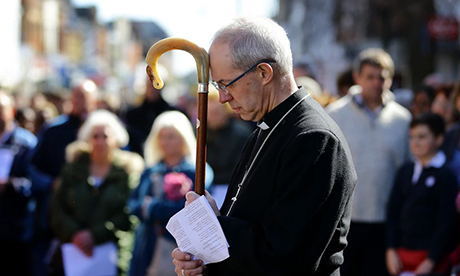Archbishop of Canterbury Justin Welby has resigned following mounting criticism of his handling of the John Smyth abuse scandal, with calls for other senior clergy implicated in the case to follow suit.
An independent review, led by safeguarding expert Keith Makin, condemned the Church of England for its failure to report the “abhorrent abuse” Smyth inflicted on young boys.
The review noted years of abuse could have been prevented if Welby and others had acted more decisively when allegations first surfaced in 2013.
Welby, who has served as Archbishop since 2013, announced his resignation on Tuesday after admitting he should have taken personal responsibility for the Church’s response. He acknowledged he failed to ensure that the abuse allegations were fully investigated by police, even after survivors raised urgent concerns.
“When I was informed in 2013 and told that police had been notified, I believed wrongly that an appropriate resolution would follow” Archbishop Welby said.
“It is very clear that I must take personal and institutional responsibility for the long and retraumatising period between 2013 and 2024.”
Welby expressed deep regret for the Church’s failures, saying “This decision makes clear how seriously the Church of England understands the need for change”.
Pressure on other Church leaders
Welby’s resignation has intensified scrutiny on other senior Church leaders whom survivors accuse of failing to take sufficient action against Smyth.
Smyth, a Christian summer camp leader, used his influence in Church circles for decades to abuse young men. Despite the seriousness of these allegations, the Church’s leadership has been criticised for failing to take appropriate steps to bring Smyth to justice.
Key figures facing pressure to resign include Bishop Stephen Conway and Bishop Jo Bailey Wells.
Bishop Conway, who received reports of Smyth’s abuse in 2013, has been called upon to step down for his role in the alleged mishandling of the case. The Makin Review found that, while Conway was in a position to refer Smyth’s case to police, he failed to follow through, thus missing a crucial opportunity to initiate an investigation.
Bishop Jo Bailey Wells, then Welby’s chaplain, is similarly under fire. She deferred a safeguarding referral to local Church authorities, assuming police were handling the matter.
The report highlights that this decision left the allegations in limbo, with no further action taken to protect victims.
Survivors not appeased
Welby’s resignation has not appeased survivors or advocates, many of whom argue that additional resignations are essential to restoring trust in the Church’s commitment to safeguarding reforms.
Andrew Morse, a victim who Smyth severely beat as a teenager, backed calls for Bishop Conway to resign.
He said “Conway should resign for obstructing the Smyth victims in our long road to justice. I cannot see how someone so closely associated with the problem can be part of any solution”.
Conway has apologised, stating “I am sorry that I did not pursue these actions at that time” but survivors insist that such apologies are insufficient without accountability.
Honourable decision
The Archbishop of York, Stephen Cottrell, supported the resignation of Archbishop Welby, calling it an “honourable decision”. Cottrell emphasised that Welby’s departure should be a pivotal moment for the Church to commit to meaningful safeguarding reform.
Bishop of Newcastle Helen-Ann Hartley voiced the need for a structural overhaul, stating “This is a very clear indication that we must move towards independence in safeguarding”.
A statement issued on behalf of victims by Andrew Graystone, author of Bleeding For Jesus: John Smyth and the cult of the Iwerne Camps, states “John Smyth was indeed the Church of England’s very own Jimmy Savile”.
Graystone told The Tablet that “The astonishing thing about this report is how many people at the most senior levels of the church knew about John Smyth’s appalling abuse, but failed to do anything to stop him. The questions that arise, as ever, is who will take responsibility and what will change. The answers, at least thus far, are ‘no one’, and ‘nothing’”.
Sources
